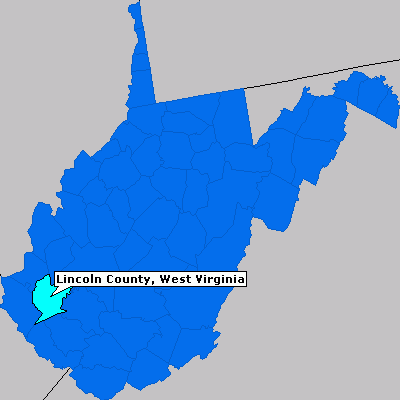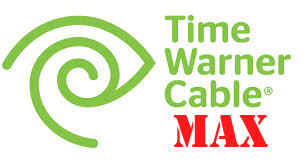
Phillip Dampier
Welcome to 2015!
This is the seventh year Stop the Cap! has fought for better broadband across North America and beyond. Whether your provider is Comcast, Time Warner Cable, Rogers, Bell, AT&T, Verizon or a (dwindling) number of other cable and telephone companies, there is plenty of room for improvement.
When we began in the summer of 2008, Frontier Communications was contemplating a usage cap of just 5GB a month on their broadband service. A year later Time Warner Cable market tested caps as high as 40GB a month. For almost as long as we’ve existed, Comcast has believed 250GB a month was all most customers ever needed. Rogers’ most popular Internet package today offers 60GB a month, despite the fact Canadians on average watch more online video than anyone else. AT&T thinks 150GB a month is fine for DSL and 250GB is all you’d need as a U-verse customer. Verizon doesn’t see a need for limits on either its DSL or fiber optic networks. Neither does Cablevision.
Usage caps and so-called “usage-based billing” continue to be one of the most under-reported stories in the tech press. Touted as “fair pricing,” these plans are in fact little more than profit-padding for a service that already earns companies as much as 90% gross margin. There is nothing fair about usage-based billing in North America. Customers face the same prices they have always paid for unlimited service, but now endure an arbitrary usage allowance that usually includes a stiff overlimit fee. Those providers charging usage pricing do not offer the fastest service, have not made significant improvements above and beyond other providers that still charge flat rate prices, and frequently also charge excessive modem rental fees.
The duopoly most Americans have for broadband service has become quite fat and happy collecting ever-increasing amounts of money for service that only seems to improve after an upstart competitor like Google arrives ready to offer better service at a lower price. Customers in Kansas City, Austin, and a handful of other communities are getting the best upgrades and are empowered to negotiate a lower price for service. The rest of the country is not so lucky. A handful of often-under capitalized fiber competitors have arrived in some areas, but their market share generally remains a fraction of what the cable and phone companies have locked up.
We have always believed broadband was destined to become the next must-have utility service, following clean water, electricity, gas and some form of telephone service. Unfortunately, Washington policymakers continue to treat Internet access as an optional extra, allowing one or two companies to dominate access in most communities. Policymakers and regulators have done very little to protect consumers from the effects of marketplace concentration, allowing cable and phone companies to merge and raise prices, remain uncommitted to protecting the Open Internet with strong Net Neutrality protections, and not taking the effects of usage caps seriously.
One of the most effective ways a community can combat bad service and high prices is to support launching its own public broadband network. Throughout the United States, local town and counties enduring “good enough for you” broadband (or no service at all) are constructing their own fiber optic networks to better meet the realities of the 21st century digital economy. They face industry-funded opposition in at least 20 states where lawmakers have banned or severely curtailed these networks to protect private telecom giants from the effects of serious competition.
In 2015, Stop the Cap! will continue to fight for consumers looking for a better deal:
- We continue to oppose industry consolidation. Mergers and buyouts benefit executives and shareholders. They almost never benefit customers who soon find rate increases, fewer choices, and often worse service as a result. Connecticut residents know that first hand enduring Frontier Communications’ recent bungled transition from AT&T service. Customers that dislike Time Warner Cable will likely loathe Comcast if that merger wins regulator approval. AT&T’s buyout of DirecTV leaves one less competitive choice for customers living in AT&T’s service areas looking for an alternative to U-verse television. Imagine if the government had approved AT&T’s attempted buyout of T-Mobile, the one wireless carrier now willing to throw a monkey-wrench into the current dominance of almost-identical expensive wireless service plans from AT&T and Verizon.
- Usage caps and consumption billing remain unjustified, particularly for wired broadband. Despite industry claims that usage caps and usage billing stimulate investment, in most cases the costs of delivering broadband service and the amounts companies invest in network upgrades continue their relentless decline on a per customer basis. Usage billing is no prescription for congestion problems either. Most congestion problems occur during peak usage levels — when light and heavy users alike are most likely to be online. A truly fair usage pricing scheme would charge a fair price for actual usage and nothing else. But such a pricing scheme would likely cut broadband bills and profits. So providers offer pre-determined compulsory usage allowances at current prices instead, and do not offer a flat rate option or rollover unused usage to a future month. As a result, customers often pay more for less service and constantly have to check their usage to make sure they do not get an unexpected surprise on their bill.
- Strong Net Neutrality protection is the best guarantee of preserving the Internet as it exists today – where success or failure of an online venture is based on what it offers customers, not on the size of its bank account. A nationwide end to laws restricting the development and expansion of community broadband is also essential to give communities self-determination of their broadband future.
- We will continue to educate consumers on how to negotiate a better deal with your provider and avoid expensive surcharges like modem rental fees. We will also continue to enlighten you about the pervasive influence of Big Telecom money on non-profits, state and federal governments, and researchers that support the various agendas of some of the largest telecom corporations in the country.
Broadband is improving at an incredible pace around the world, but back home prices continue to rise while Internet speed improvements are often met by usage cap road bumps. Internet affordability remains as much of a problem as rural broadband access. The more you know, the more effective you can argue for a change in telecom policies, where the public interest is better-balanced against corporate profits and duopoly prices.
Thank you for being a part of our efforts to make things better.


 Subscribe
Subscribe After raising prices for Internet service and imposing the nation’s highest modem rental fee, Comcast customers in Oregon and southwest Washington are finally getting some good news:
After raising prices for Internet service and imposing the nation’s highest modem rental fee, Comcast customers in Oregon and southwest Washington are finally getting some good news: 

 Comcast: 88% of customers met or exceeded state and federal standards;
Comcast: 88% of customers met or exceeded state and federal standards; More than 50 mayors of towns and cities large and small regurgitated Comcast-provided talking points in
More than 50 mayors of towns and cities large and small regurgitated Comcast-provided talking points in 
 Assuming Comcast doesn’t take over Time Warner Cable and change priorities, the city of Los Angeles is
Assuming Comcast doesn’t take over Time Warner Cable and change priorities, the city of Los Angeles is  The first Gigasphere pilot test will begin sometime next year. But a Comcast takeover could shift priorities away from offering the kinds of broadband speeds Time Warner is providing under its TWC Maxx upgrade program. Time Warner’s Internet speeds in upgraded areas are now substantially faster and cheaper than what Comcast offers in its service areas. Comcast could decide to retire the broadband upgrade program altogether and settle on offering speeds comparable to what it already sells across much of its national footprint.
The first Gigasphere pilot test will begin sometime next year. But a Comcast takeover could shift priorities away from offering the kinds of broadband speeds Time Warner is providing under its TWC Maxx upgrade program. Time Warner’s Internet speeds in upgraded areas are now substantially faster and cheaper than what Comcast offers in its service areas. Comcast could decide to retire the broadband upgrade program altogether and settle on offering speeds comparable to what it already sells across much of its national footprint.